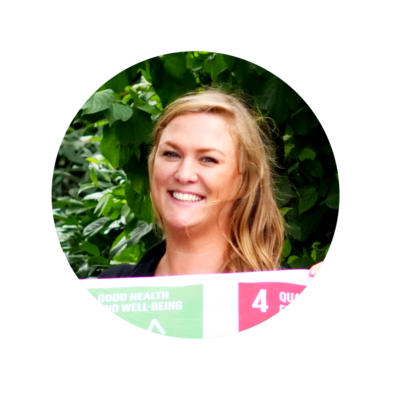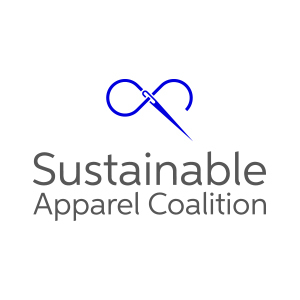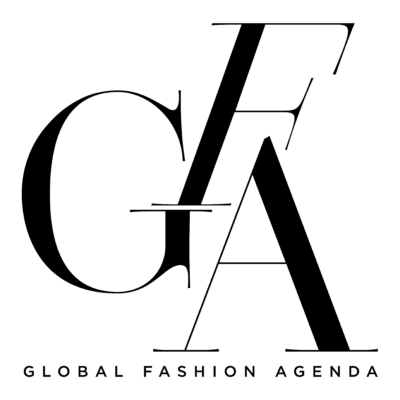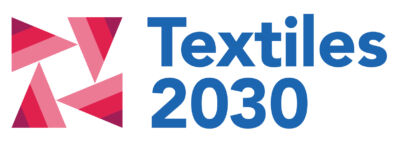Only when you try to adopt more sustainable practices do you realize how complex the issue is. It’s never just as simple as swapping to recycled paper or encouraging customers to wash garments at colder temperatures — it’s examining the whole value chain and deciding if one change here is worth the impact there. It’s a can of worms the fashion industry has grappled with for a while. And we wanted to do more to help…
Checkpoint has just been approved for three new memberships that’ll guide retailers like you toward a circular economy with more sustainable practices. It’s technical stuff, so we invited our Global Sustainability Manager, Bethan Taylor, to explain (in plain English) what these new sustainability groups are and — more importantly — how they benefit you.
“One of the biggest impacts of the fashion industry is greenhouse gas emissions; we're one of the largest emitters globally and are responsible for nearly 10% of global emissions,” she says.

Bethan used to work on the retail side of things, with Boohoo Group PLC, The Body Shop, and Debenhams, so she thinks a little differently compared to your average sustainability manager. It’s her superpower. Keep reading to discover how these new groups can benefit you and your projects.
Cascale
Cascale, formerly The Sustainable Apparel Coalition (SAC), is a global multi-stakeholder nonprofit alliance for the consumer goods industry. It’s made up of more than 300 leading apparel, footwear, and textile brands, retailers, suppliers, service providers, trade associations, nonprofits, NGOs, and academic institutions. Together, they aim to reduce fashion’s environmental impact and promote social justice throughout the global value chain.
"By signing up as an official manufacturer member, we're committed to help deliver Cascale's mission, vision, and purpose within the fashion, textiles, and footwear industry," says Bethan.
Worldly (previously Higg) is a Cascale technology partner. They’ve created Facility Environment Module (FEM) and Facility Social & Labor Module (FSLM) index tools that measure and focus improvements on environmental and social impact. Our manufacturing sites have been using Higg Index for years, some since 2017, and it’s a super effective way to help SAC members manage those improvements at a site level.
Cascale's vision is based on three impact pillars: 'combat climate change,' 'decent work for all,' and 'nature-positive future.' We can’t wait to get stuck in and help make some serious waves!
Learn more: Cascale, formerly the Sustainable Apparel Coalition

Global Fashion Agenda
The Global Fashion Agenda (GFA) is a nonprofit organization that encourages industry collaboration on sustainability in fashion to accelerate impact. To reach its net positive fashion industry goal, it mobilizes, influences, and educates.
“The GFA represents brands and retailers that already have sustainable solutions, coming together to try and help the fashion industry as a whole,” says Bethan.
Checkpoint has become a GFA Digital Innovation Forum member. In the GFA’s own words, the Innovation Forum is a ‘curated community of the world’s leading sustainable solutions covering the whole supply chain’.
The GFA connects Innovation Forum members to the broader fashion industry through activities and networking opportunities to help nurture new ideas. And anyone who’s seen our Tailored Creatives project knows how much we love collaborating.
“We’ve been recognized as a sustainable solution provider for our RFID and smart labelling solutions,” says Bethan. “RFID supports supply chain transparency, inventory efficiency, and circular supply chains, which help businesses limit their environmental impact long-term.”
Learn more: Global Fashion Agenda

Textiles 2030
Textiles 2030 (T2030) is a ground-breaking initiative which harnesses knowledge and expertise from sustainability UK leaders to help move the fashion and textiles industry towards a circular economy.
“UK retailers are global — the decisions you're making as a brand affect the fashion industry as a whole,” says Bethan.
T2030 signatories will reduce their combined greenhouse gas emissions in line with The Paris Agreement to limit global warming by the end of this century. They are working to reduce their carbon impact by 50% and cut the water footprint of products sold by 30%.
Signatories will also follow a circularity roadmap to make sure their products are recyclable, that more products are gathered for re-use, and that new products contain more circular, raw material than linear raw material. Those are some punchy targets, but they’re not doing it alone…
Checkpoint has just become an T2030 affiliate member, which basically means we’ll advise and support members on anything labelling related, from material choices and recycling to policy and innovation.
“We are the first and only labeling manufacturer that is a member of T2030. We’ll be supporting their members with our expertise on upcoming labeling legislations and policies whilst also supporting conversations on circularity and how labeling can be utilized,” says Bethan.
“We’re the first labeling supplier that would think to go there, because of my previous experience as a retailer. Textiles 2030 is such a fount of knowledge,” she says. “Collaboration is key with sustainability, so it's really important that we're part of these conversations that are shaping positive change within the industry.'

So, how do these fashion sustainability groups benefit you?
Good question! Labels may not seem like a huge piece of the process where sustainability’s concerned, but they really are. Our teams have helped Sainsbury’s move to 100% plastic-free swimwear packaging and helped Walmart use RFID for inventory management, which could help limit their carbon footprint through smarter ordering and stock allocation.
“It’s so incredibly helpful to work with a label partner who is part of these groups, is on top of legislation, and looking at the impact of materials,” says Bethan.
“Sustainability starts with design. It all comes back to how we approach our customers and our projects. From the start, we consider your materials, your location, and other factors to connect the dots and help you reach your individual targets. We’re here to help.”
Ready to go hard on moving towards a more circular fashion economy? Our teams know their stuff and are ready and waiting to help you move closer to your green goals — whatever that looks like for you. Get in touch and let us know how we can help or ask us more about our sustainability certifications. We’re an open book!
